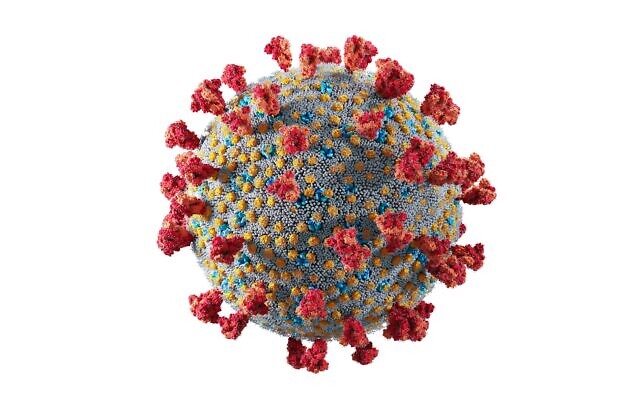COVID-19’s Toll on Jewish Atlanta
The rate of increase in new cases is rivaling — and in some areas exceeding — the Jan. 21 peaks, both statewide and in the metro area.
Dave Schechter is a veteran journalist whose career includes writing and producing reports from Israel and elsewhere in the Middle East.
As COVID-19 continues to disrupt Jewish life in Atlanta, the effects of the spike in cases driven by the Omicron variant include:
Neranenah postponed until next year the Michael Feinstein show scheduled for Jan. 13 at City Springs.
Ahavath Achim Synagogue had hoped that the annual Eizenstat Lecture would allow at least limited in-person attendance, but the Jan. 24 conversation between Amb. Stuart Eizenstat and Secretary of State Antony Blinken will be virtual-only.
Congregation Bet Haverim moved its Friday night Shabbat services back to all-Zoom, at least through Jan. 21, and will reassess for Jan. 28 and moving forward.
Temple Beth Tikvah advised its members on Dec. 27: “We strongly encourage our members to get vaccinated and boosted. However, if someone’s personal choice is not to do so, then we kindly request that for the next two weeks they refrain from coming into the synagogue building.”

As indicators of the spread of COVID-19 have trended sharply upward, so have the demands on Jewish Family & Career Services. “The impact that we’re seeing right now is that our mental health demand continues to just skyrocket and we’re triaging the waiting list as fast as we can,” JF&CS CEO Terri Bonoff said, adding that COVID also has increased calls to its HAMSA (Helping Atlantans Manage Substance Abuse) program.
JF&CS also has been forced to shift staff from its day programs for the developmentally disabled to replace ill care givers who work in its residential facilities. That, in turn, has led to a temporary shutdown of the day programs (which had resumed in September) and put a greater burden on the families of the young adults and adult participants.
The Atlanta-based federal Centers for Disease Control and Prevention labels the community transmission risk of COVID-19 as “high” statewide and in the four core metro Atlanta counties — Cobb, DeKalb, Fulton and Gwinnett.
As of Jan. 11, cases in Georgia were running 224 percent ahead of the January 2021 peak, while hospitalizations were up 115 percent and deaths 26 percent, based on data from local, state and federal agencies. The increase in new cases was well in excess of January 2021 in the four counties: 440 percent in Gwinnett, 290 percent in DeKalb, 284 percent in Cobb and 209 percent in Fulton.
The effects of the Omicron variant may be less severe than the “original” SARS-CoV-2 strain or the Delta variant — for those fully vaccinated, as the unvaccinated remain at greater risk — but researchers say it’s more easily transmissible and is responsible for upwards of 95 percent of new COVID cases in the country.
According to the Georgia Department of Public Health, as of Jan. 11, the state has recorded more than 1.57 million confirmed COVID cases since the beginning of the pandemic, more than 97,500 hospitalizations and 26,589 deaths confirmed as linked to COVID.
Even as some municipal governments reinstate rules relaxed several months ago and local school districts differ in their responses, the message at the state level remains unchanged. “I will absolutely not be implementing any measures that shutter businesses or divide the vaccinated from the unvaccinated or the masked from the unmasked. It is time to trust our citizens to do what’s right for themselves and their families,” Gov. Brian Kemp said Dec. 29.
Kemp authorized a call-up of National Guard personnel to assist at COVID testing sites and in hospitals straining from increased patient loads.

Kemp also directed that $100 million — funds from the federal American Rescue Plan Act — be spent to hire nurses, doctors and other health care professionals on short-term contracts. Georgia will be bidding against other states that are experiencing similar personnel shortages. A check of the job site indeed.com found staffing agencies listing pay ranging from $3,100 to $5,000 per week for registered nurses interested in work in Georgia.
When the Fulton County Board of Health compared new cases reported in the first two weeks of December with the second two weeks, the increases measured 1,025 percent in Alpharetta (from 113 to 1,305), 984 percent in Sandy Springs, 830 percent in Roswell and 721 percent in Atlanta.
DeKalb County reported that the largest increase in new cases during December alone and during a longer 12-week period came from 30- to 39-year-olds.
According to the CDC, 54.8 percent of the state population age 5 and older was fully vaccinated as of Jan. 9. Cobb County reported that 45.3 percent of its 5-and-older population was fully vaccinated, DeKalb County 38.7 percent, Gwinnett County 36.7 percent and Fulton County 35.4 percent, according to the CDC. (Statewide, and in all four counties, the percentage fully vaccinated increases as you move from the youngest to the oldest.)
COVID-19 vaccines were administered in metro Atlanta beginning Dec. 16, 2020. Vaccination of people 65 and older began on Jan. 11, 2021. Georgians aged 16 and older became eligible on March 25. On May 10, the federal Food & Drug Administration authorized the vaccine for anyone 12 and older. On Nov. 3, the Pfizer vaccine was made available for children 5 and older.
Another metric is a census of hospital patients. According to the Georgia Geospatial Information Office, a data-collecting state agency, the number of COVID-positive patients in Georgia hospitals has increased sharply since Thanksgiving. As of Jan. 9, out of 17,093 patients hospitalized statewide, 27.9 percent were COVID-positive and another 2.7 percent were being “investigated” as possibly having COVID.
Statewide, hospitals estimate that 70 percent of their COVID patients were unvaccinated. The CDC continues to stress that the unvaccinated are significantly more likely to die from COVID-related complications than those who have received a two-shot inoculation or who also have been administered a booster.

Also being impacted is the ability of hospitals to handle incoming patients transported to emergency departments. The Georgia Coordinating Center, which was established following the 2019 flooding at Grady Memorial Hospital, reported that, as of Jan. 8, the emergency departments of many major hospitals in metro Atlanta were “severely overcrowded,” with some listed as being unable to accept incoming ambulance traffic.
When the COVID-19 pandemic struck, the Jewish Federation of Greater Atlanta established an emergency fund. More than $4.3 million was raised and, as of January, nearly $3.9 million has been allocated throughout the community.
With the spread of the Omicron variant, the JFGA is hearing from Jewish organizations needing help to afford bulk purchases of KN-95 masks and COVID testing kits, items that are back in high demand and whose cost has been increasing. “The Federation also has been holding dollars in reserve with the uncertainty of the variants, etc.,” keeping a cushion should the COVID crisis continue or worsen, Rich Walter, Chief of Programs and Grantmaking, said.
One issue that cannot be solved through the emergency fund but that is posing a challenge for several organizations is the need to offer competitive wages for frontline workers, “the new cost of doing business” that Walter said is a matter of concern to the Federation.
- Local
- Dave Schechter
- COVID
- jewish atlanta
- jewish federation of greater atlanta
- Jewish Family & Career Services
- Neranenah
- city springs
- Ahavath Achim Synagogue
- Congregation Bet Haverim
- temple beth tikvah
- HAMSA (Helping Atlantans Manage Substance Abuse)
- Centers for Disease Control and Prevention
- Georgia Department of Public Health
- Fulton County Board of Health
- Food & Drug Administration
- Georgia Geospatial Information Office
- Georgia Coordinating Center
- Grady Memorial Hospital
- Alpharetta
- Sandy Springs
- Roswell
- Atlanta
- Fulton County
- DeKalb County
- Cobb County
- Gwinnett County
- mental health services
- Mental Health
- GEORGIA
- health care professionals
- jewish life
- Omicron variant
- Eizenstat Lecture
- COVID-19
- Friday Night Shabbat
- Zoom
- booster
- Vaccinated
- Delta variant
- National Guard
- COVID testing
- American Rescue Plan Act
- Pfizer vaccine
- COVID patients
- COVID-related complications
- Jewish organizations
- KN-95 masks
- COVID testing kits
- COVID crisis
- Rich walter
- Terri Bonoff
- Michael Feinstein
- Stuart Eizenstat
- Antony Blinken
- Governor Brian Kemp
- health & Wellness




comments